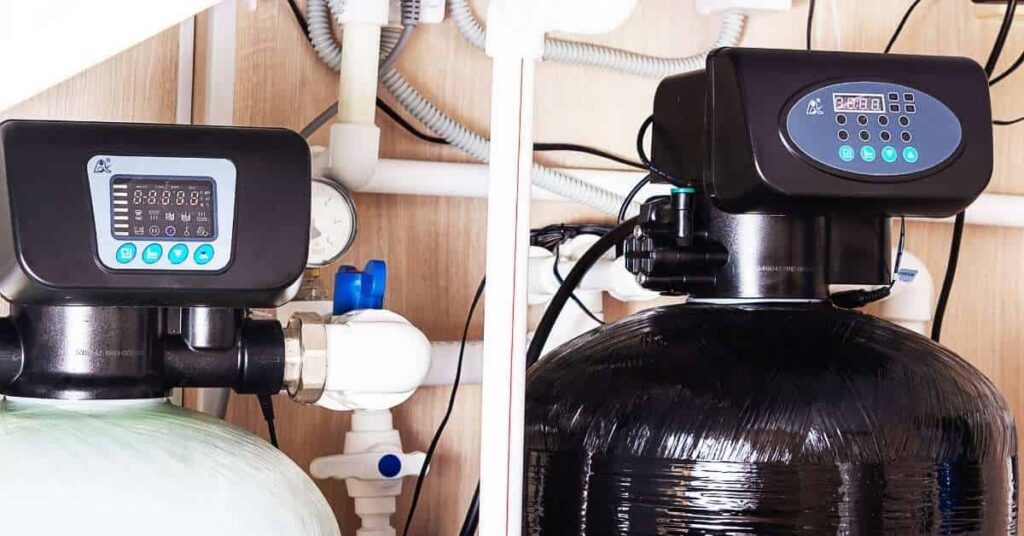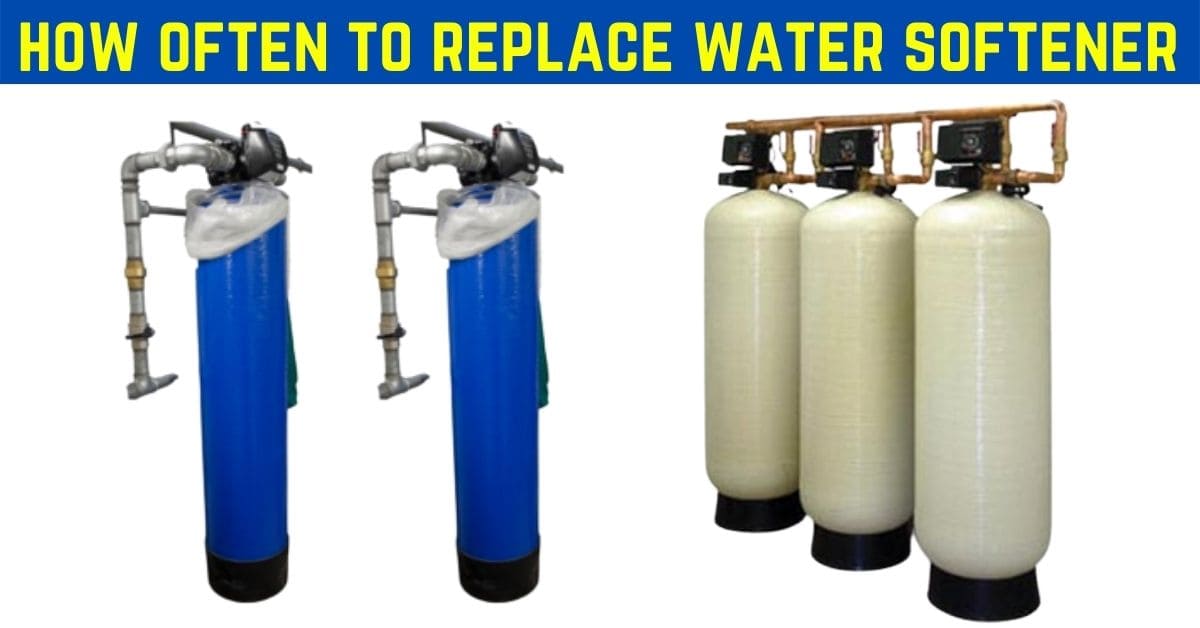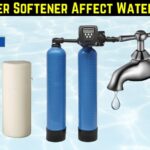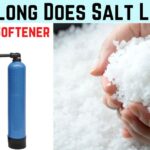Are you looking to buy a new softener? Here’s a guide on how often you should replace your house water softener.
Depending on the size of your family, type of water hardness, and soft water usage, you may need to replace it more or less frequently than recommended here.
Read on for more information!
When Should Replace Your House Water Softener?
The average lifespan of a fabric softener is about 10-12 years.
However, this number will vary depending on the quality of the unit, how well it has been routine maintenance, the hardness of your water, and how much water your family uses.
If you notice that your electric outdoor softener isn’t working as well as it used to, it may be time to replace it.
Other signs that you may need a new electric water softener to include:
- The water coming out of your taps is no longer soft. This is the most obvious sign that something is wrong with your softener.
- There is a mineral buildup deposits around your fixtures. It can be a sign that the softener is not removing all the minerals from the water.
- Your water bill has increased. It could be due to the softener working less efficiently and using more water than it should.
- Your pipes are making strange noises. This could be a sign of sediment buildup in the lines, which can happen if the softener is not working correctly.
- You’re using more types of salt used than usual
- There is rust in your pipes or fixtures
- You have hard water stains on your dishes or laundry
- There is a decrease in water pressure
- There is rust or sediment in your water
If you notice any of these signs, it’s best to call a plumber or water filtration specialist to take a look.
They’ll diagnose the issue and recommend the perfect solution.
Common Signs Your Softener Isn’t Working Properly?
If you have a water softening system in your home, it’s essential to know when it’s not working correctly.
This way, you can fix it before it leads to more significant problems. Here are four common signs that your water softener needs some attention:
1. You See Calcium Buildup
One of the primary jobs of a softener is to remove calcium from your household water.
So, if you start to see calcium buildup around your taps or on your dishes, it’s a sign that your softener isn’t doing its job.
2. Your Water Doesn’t Feel Soft
Another way to tell if your mobile softener isn’t working correctly is by the feel of your drinking water.
If it doesn’t feel as soft as it used to or dry skin with more salt, it’s likely because there’s still calcium in it.
3. You Have Stiff Clothing
If you’ve noticed that your clothing is coming out of the wash stiffer than usual, it could be because of hard water minerals.
When laundry is done, soap scum doesn’t lather either, and it can leave a residue on clothing. This residue can make the dress feel stiff.
4. You Have a High Water Bill
When you have a softener, you should use less water than without one. So, you’ve noticed a sudden spike in your water bill.
In that case, it’s likely because your softener isn’t working correctly, and you’re using more tap water than necessary.
If you notice any of these signs, getting your water softener experts checked out by a professional is essential. They can help diagnose the problem and get your softener working correctly again.
Factors That Affect the Lifespan of a Water Softener?

There are a few key factors that will affect the lifespan of your softener:
The quality of your water source
Your softener must work harder to remove the minerals if you have hard water. It can shorten its lifespan.
The softener
Different softeners are on the market; some are more durable than others. Do your research to find a softener that will last.
How often do you use it
Using your water treatment system regularly will wear out faster than occasionally.
Maintenance
Follow the manufacturer’s instructions for time to maintain and care for your water system. It will help it last longer.
By keeping these factors in mind, you can extend the lifespan of your salt tank and enjoy softer water for years to come.
Tips To Extend The Life Of Your Softener?
Softeners are essential in keeping your home’s water clean and free of hard minerals.
However, like any appliance, they require regular maintenance to keep them running correctly. Here are a few tips to help you extend the life of your softener brine tank:
1) Check the salt level regularly
One of the most important things you can do to maintain your water-softening system is to keep the salt tank full.
Salt (sodium ions) helps the unit remove other minerals from your water. The softener will be less effective if the brine tank water runs low.
2) Drain and refill the unit regularly
Another essential part of maintenance is draining and refilling the team regularly. This helps remove any sediment buildup and keeps the unit working correctly.
3) Keep the filters clean
The water filters in your softener need to be kept for the unit to work correctly, and you should check them regularly and replace them as needed.
By following these simple tips, you can help extend the life of your water-softening system and keep it working correctly for years to come.
Are You Happy With Your Home’s Water Quality?
You must be happy with your home’s water quality for various reasons. It is essential for cooking, cleaning, drinking, and bathing.
Poor magnesium from water can lead to several health problems, so ensuring your home has access to clean, safe water is essential.
One way to test quality is to have it professionally tested by a water treatment specialist.
It will give you an accurate idea of what contaminants are in your water output and how they could affect your health.
Installing a water filtration system in your home is also a good idea to remove any harmful contaminants from your water supply.
If you’re unhappy with your home’s water quality, you can do a few things to improve it.
By taking simple steps, you can ensure your family can access clean, safe water analyses for all their needs.
What Type Of Water Softener Do You Have?
You can get a softener from salt-based and salt-free.
Salt-based water softeners use sodium levels to exchange with the hard minerals in your water to soften it.
Salt-free water softeners don’t remove the hardness minerals but keep them from bonding together and forming scale.
If your softener is salt-based, you must add salt regularly to keep it running correctly.
The amount of salt bridge you’ll need to add will depend on your unit’s size and the water’s hardness.
Most home improvement stores can purchase a solar salt supply for your softener.
You won’t need to add salt if you have a salt-free softener. Instead, you’ll need to replace the water filter every few months.
The frequency of replacement will depend on the manufacturer’s recommendations.
You can purchase a replacement water filter for your salt-free softener from home improvement stores or online.
What Water Softeners Are Recommended?
Various softeners are on the market, and it can be challenging to determine which is the best for your needs.
However, there are a few factors that you should consider when choosing a softener.
The type of water you have in your home is an important consideration when choosing a softener.
If you have hard water, selecting a softener to remove hardness ions from your water is essential.
Additionally, you may need to choose a softener to use with a private well if you have a well.
The size of your family is another important consideration when choosing a softener. If you have a large family, you must select a softener that can handle the increased demand for soft water.
You can get away with a smaller softener if you have a small family.
It will give you an idea of which softeners are the most popular and which have the best reviews.
Considering all of these factors, you should be able to find the best water softener for your needs.
Benefits of a New Softener?
- A new water softener salt can provide many benefits for your home.
- It can save you money on your water bill and improve quality.
- It can also extend the life of your appliances and plumbing fixtures.
- A softener can also help reduce scale buildup in your pipes and fixtures.
- Softened water can significantly affect your water quality if you have hard water.
Hard water issues can cause several problems, including water spots on dishes and clothing, mineral deposits in plumbing fixtures, and appliance damage.
Softening your water quality can eliminate these problems and make your home more comfortable.
You may also keep in mind:
- The RV softener can also improve the taste of your quality water. Hard water often has a strong, unpleasant taste, making it difficult to drink. Softening your water flow condition can make it taste better and be more enjoyable to drink.
- There are several types of water softener resin beds on the market, so you can choose the one that best meets your needs. You may need commercial-grade water softening if you have a large home with hard water conditioners. But several compact countertop models will work well if you have a smaller house or apartment.
- When you decide to replace a water softener system, compare features and prices to find the unit that best fits your needs. Several online retailers sell water softening systems, so you can easily shop around and compare prices.
- Installing a softener is usually straightforward, and most units have detailed instructions. If you need more time to install the unit yourself, you can hire a plumber to do it for you.
- Properly maintain a softener according to the manufacturer’s instructions once a softener is installed. It will help to keep it working correctly and extend its lifespan.
Conclusion: (How Often To Replace Your House Water Softener?)
A softener is an essential appliance in your home. It helps to keep your water clean and free of hard minerals.
You also understand that it is necessary to maintain your softener by replacing the form of salt (sodium ions) and damaged resin bed regularly.
Knowing how often to replace these parts will help keep your water softener running efficiently for many years. Thanks for reading!
Suppose you have questions about softeners or want our team to help you select the best option for your home. We are always happy to help!






